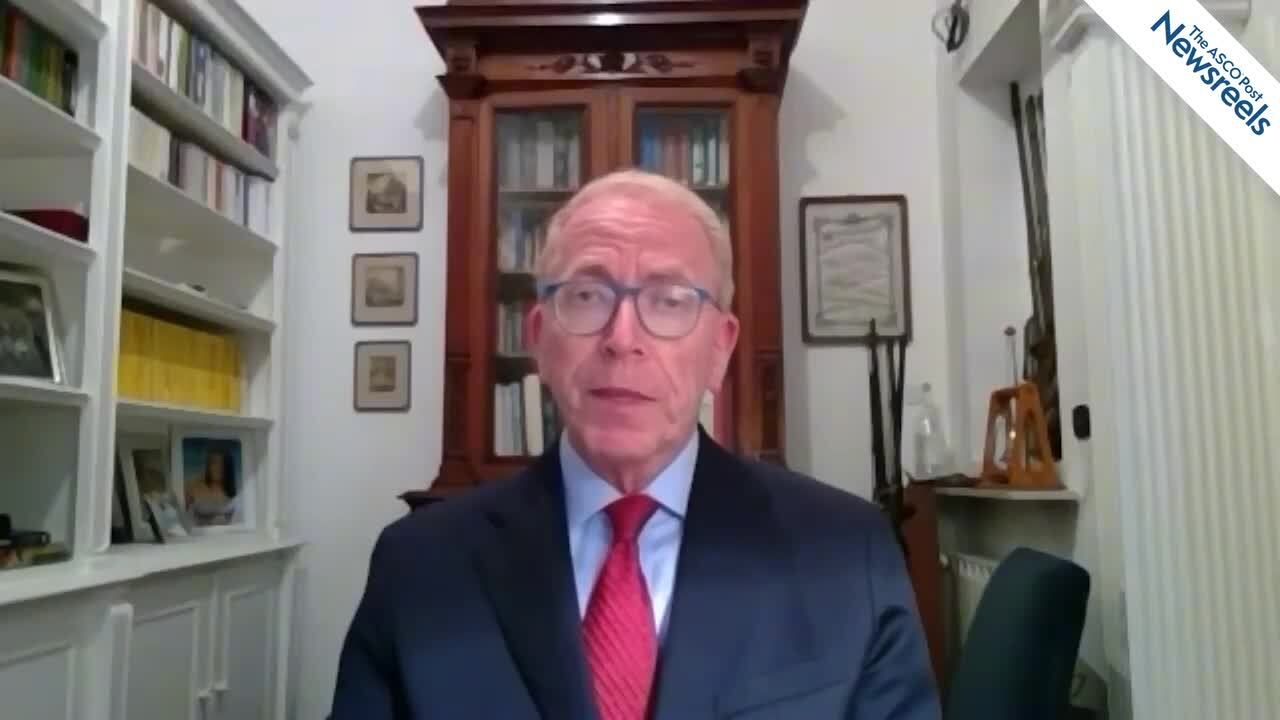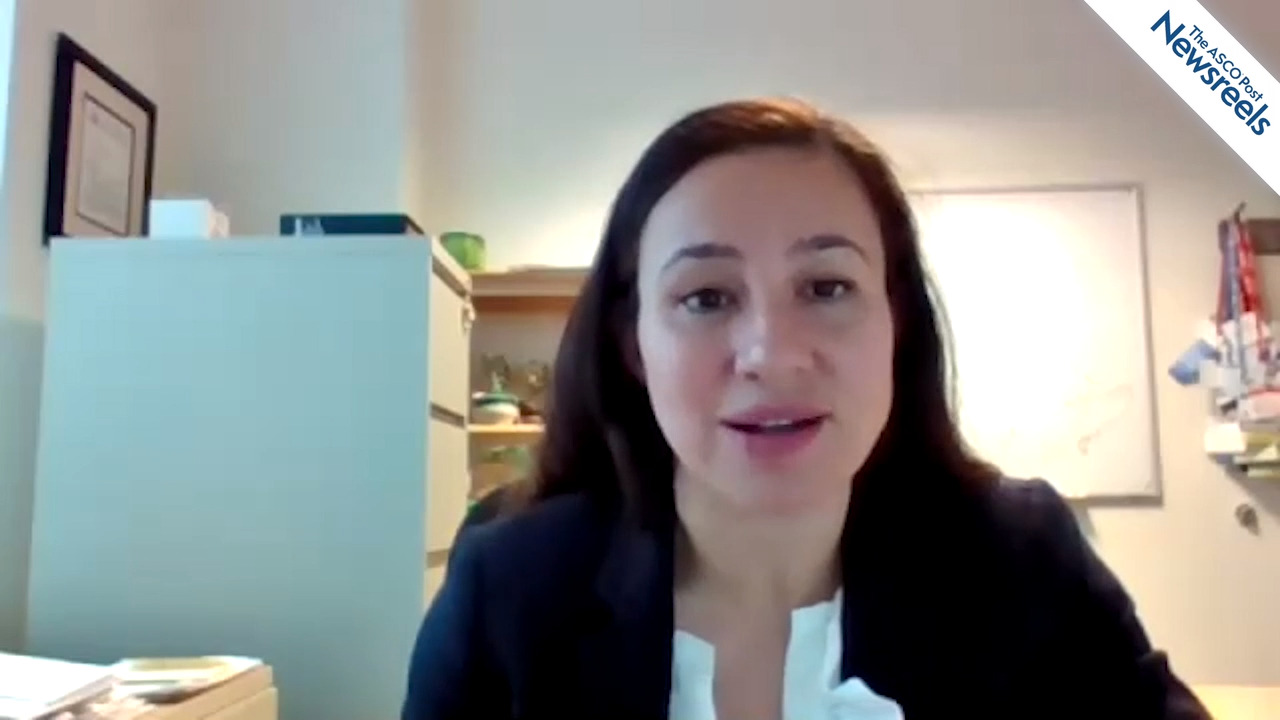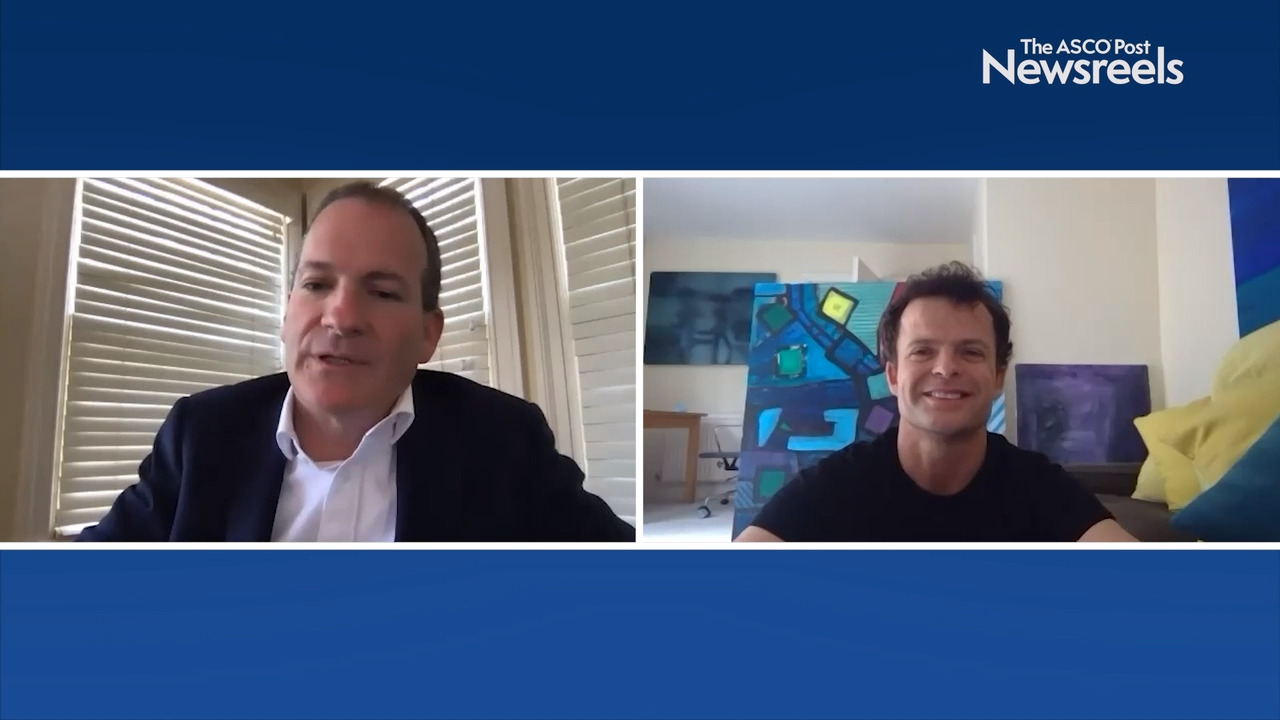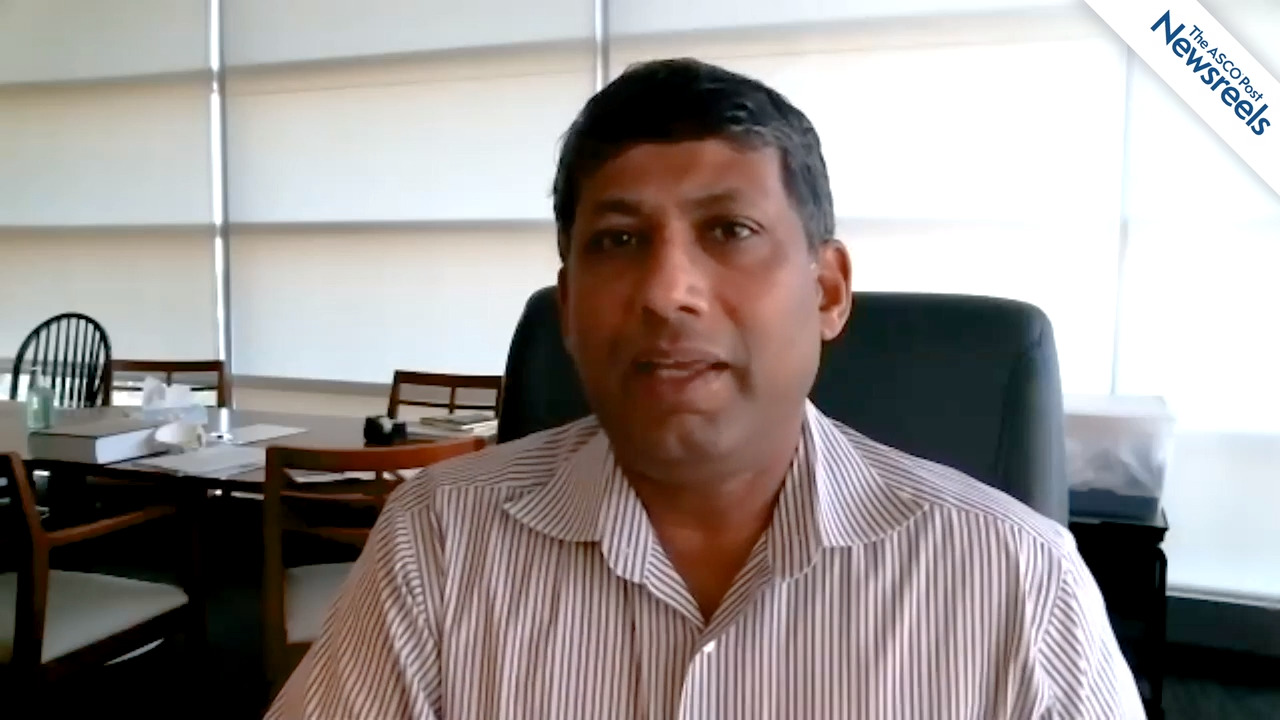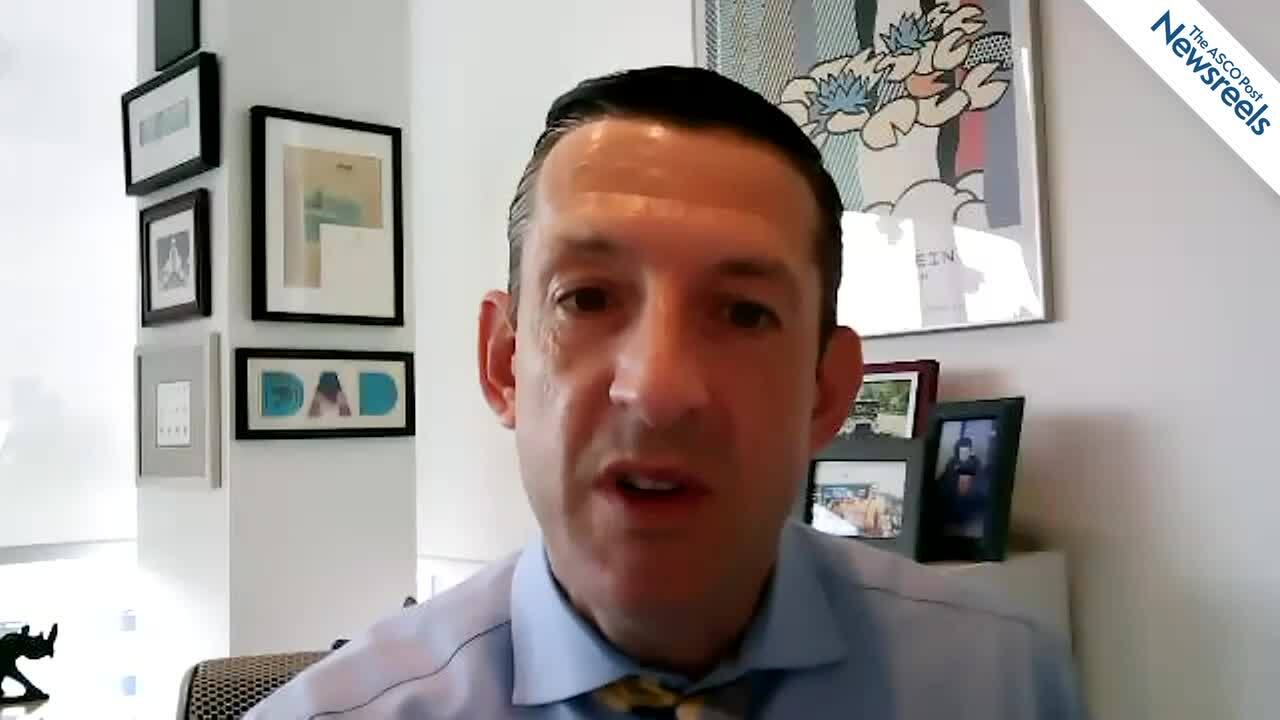Parameswaran Hari, MD, on Multiple Myeloma: Expert Commentary on Four Key Abstracts
ASCO20 Virtual Scientific Program
Parameswaran Hari, MD, of the Medical College of Wisconsin, discusses data from four trials and their clinical implications for the treatment of patients with multiple myeloma: the KarMMa and EVOLVE studies on CAR T cell therapies; SWOG-1211 on bortezomib, lenalidomide, and dexamthasone with/without elotuzumab for newly diagnosed, high-risk disease; and the GMMGCONCEPT trial on isatuximab, carfilzomib, lenalidomide, and dexamethasone in front-line treatment (Abstracts 8503, 8504, 8507, 8508).
Related Videos
The ASCO Post Staff
Alberto F. Sobrero, MD, of the Ospedale San Martino, discusses final results of the IDEA study, which supported the use of 3 months of adjuvant CAPOX, vs 6 months, for most patients with stage III colon cancer. The shorter treatment duration reduced toxicity, inconvenience, and cost (Abstract 4004).
The ASCO Post Staff
Rana R. McKay, MD, of the University of California, San Diego, discusses the results of a phase II trial of intense neoadjuvant hormone therapy followed by radical prostatectomy in men with high-risk prostate cancer. The data show that 21% of patients had a favorable pathologic response (Abstract 5503).
The ASCO Post Staff
As Thomas Powles, MD, PhD, of Queen Mary University of London, prepares to deliver his late-breaking presentation at the ASCO20 Virtual Scientific Program (LBA-1), he talks with Christopher Sweeney, MBBS, of Dana-Farber Cancer Institute, about current therapy: PD1/PDL1 inhibition in second-line treatment and as monotherapy in the first-line setting, as well as the concept of maintenance switch.
The ASCO Post Staff
Parameswaran Hari, MD, of the Medical College of Wisconsin, discusses phase III data from a 6-year follow-up of the STaMINA trial, which compared progression-free survival among 758 patients with high-risk multiple myeloma who received a second autologous transplant and lenalidomide maintenance; consolidation with lenalidomide, bortezomib, and dexamethasone followed by lenalidomide maintenance; or lenalidomide maintenance alone (Abstract 8506).
The ASCO Post Staff
Mikkael A. Sekeres, MD, of the Cleveland Clinic, discusses data from a phase II study of pevonedistat plus azacitidine vs azacitidine alone in patients with higher-risk myelodysplastic syndromes, chronic myelomonocytic leukemia, or low-blast acute myeloid leukemia (Abstract 7506).
